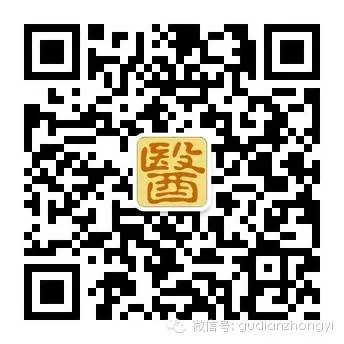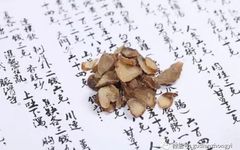Fuzi (Aconiti Radix) and Chuanwu (Aconiti Prati) come from the same plant; Chuanwu is the main root, while the sub-root that grows alongside the main root is called Fuzi. However, in commercial herbal materials, it is often sliced, so prescriptions frequently refer to it asFu Pian.During processing, a coloring solution made with vegetable oil and brown sugar is added to dye it a dark tea color, which is calledHei Fu Pian; if sliced along the grain, it is calledShun Pian; if sliced across the grain, it is calledHeng Pian.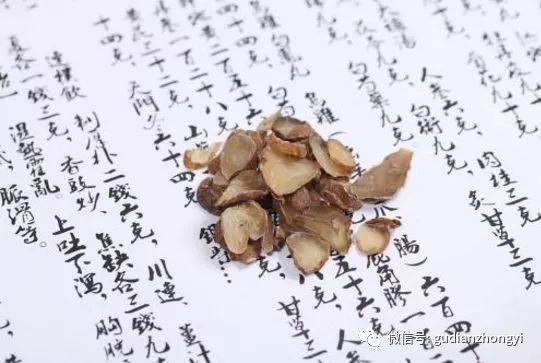 There is a type calledHuang Fu Pian, which is dyed yellow and sliced across; while Bai Fu Pian is sliced along the grain, steamed, and then fumigated with sulfur to lighten its original color, which is calledBai Fu Pian.Fuzi must undergo special cultivation and processing in its production area, which not only requires special field management but also involves soaking inbrine, which contains many chemical elements, after harvesting. It is then processed through the aforementioned steps.Since the Song Dynasty, Fuzi has been a local medicinal material from Sichuan, particularly in a county-level city called Jiangyou, the hometown of Li Bai, which was formerly known as Zhangming. Now, Zhangming is a town under Jiangyou City,and the production area is centered around this region. The “Zhangming Fuzi Record” has been documented since the Song Dynasty, and the local Fuzi has always been very famous.In the past, Fuzi was processed by individual households in small workshops, leading to various specifications for commercial competition, including yellow, white, black, longitudinally sliced, transversely sliced, and thinner slices made with a plane, also known as planed slices.
There is a type calledHuang Fu Pian, which is dyed yellow and sliced across; while Bai Fu Pian is sliced along the grain, steamed, and then fumigated with sulfur to lighten its original color, which is calledBai Fu Pian.Fuzi must undergo special cultivation and processing in its production area, which not only requires special field management but also involves soaking inbrine, which contains many chemical elements, after harvesting. It is then processed through the aforementioned steps.Since the Song Dynasty, Fuzi has been a local medicinal material from Sichuan, particularly in a county-level city called Jiangyou, the hometown of Li Bai, which was formerly known as Zhangming. Now, Zhangming is a town under Jiangyou City,and the production area is centered around this region. The “Zhangming Fuzi Record” has been documented since the Song Dynasty, and the local Fuzi has always been very famous.In the past, Fuzi was processed by individual households in small workshops, leading to various specifications for commercial competition, including yellow, white, black, longitudinally sliced, transversely sliced, and thinner slices made with a plane, also known as planed slices.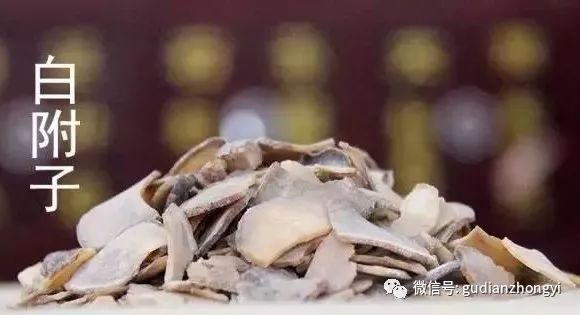 In the northwest of Sichuan, during the harvesting season of Fuzi, there is often a lot of rainy weather. Some small workshops cannot keep up with processing, similar to how Sichuan people make pickles. After digging up Fuzi, they remove the outer skin and dirt, clean it appropriately, and soak it in brine to prevent spoilage and rot, allowing it to be stored for one to two years. This is calledYan Fuzi.When using Yan Fuzi, it still needs to be sliced and soaked in water to remove the saltiness, which is calledDuan Fu Pian.In general prescriptions, this medicine is not referred to as Fuzi but rather as Fu Pian, Bai Fu Pian, Huang Fu Pian, Hei Fu Pian, etc., because it is not the whole Fuzi tuber,but rather the processed and sliced herbal material, hence it is generally called Fu Pian.It is important to clarify these various specifications of commercial herbal materials, including the traditional method of processing Fuzi by burning, and the modern method of microwave processing, which has led to an increasing number of specifications, all for the sake of commercial competition, with little relation to its medicinal efficacy.
In the northwest of Sichuan, during the harvesting season of Fuzi, there is often a lot of rainy weather. Some small workshops cannot keep up with processing, similar to how Sichuan people make pickles. After digging up Fuzi, they remove the outer skin and dirt, clean it appropriately, and soak it in brine to prevent spoilage and rot, allowing it to be stored for one to two years. This is calledYan Fuzi.When using Yan Fuzi, it still needs to be sliced and soaked in water to remove the saltiness, which is calledDuan Fu Pian.In general prescriptions, this medicine is not referred to as Fuzi but rather as Fu Pian, Bai Fu Pian, Huang Fu Pian, Hei Fu Pian, etc., because it is not the whole Fuzi tuber,but rather the processed and sliced herbal material, hence it is generally called Fu Pian.It is important to clarify these various specifications of commercial herbal materials, including the traditional method of processing Fuzi by burning, and the modern method of microwave processing, which has led to an increasing number of specifications, all for the sake of commercial competition, with little relation to its medicinal efficacy.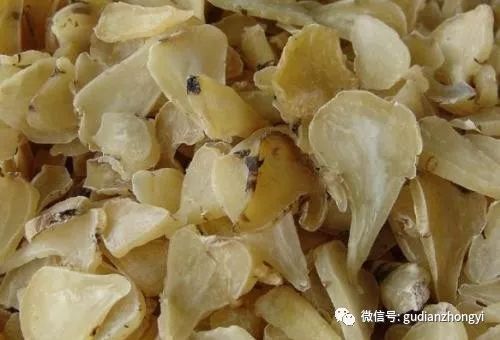 However, some people say that Yan Fuzi is intentionally made to “enter the kidney with salt,” but in fact, it is not; it is due to the inability to process it, as the quantity harvested is too large. It is influenced by the way Sichuan people make pickles, placing it in brine to prevent spoilage, and it is not intentionally made for “entering the kidney with salt”.Fuzi is also a very important medicine. Previously, when discussing Dahuang (Rhubarb), I mentioned that it is one of the four essential medicines, and Fuzi is not only a key warming medicine but also a significant herb in traditional Chinese medicine.The effects of Fuzi are primarily manifested in the following three aspects:The first aspect is particularly special, called “Rescuing Yang from Reversal”.Rescuing Yang from Reversal refers to its therapeutic effect on the condition of Yang deficiency.What is Yang deficiency? It occurs when some individuals suffer from long-term illness, leading to continuous depletion of Yang Qi, resulting in Yang Qi’s decline; another scenario is when an acute illness suddenly occurs, such as severe vomiting, diarrhea, or profuse sweating, causing Yang to escape with Yin, leading to Yang deficiency.The clinical manifestations of Yang deficiency are typically characterized by two symptoms:one is cold extremities, and the other is a thin and almost imperceptible pulse.“Deficiency” in this context means “absence”; in ancient texts, it is explained as “deficiency, absence”. The term Yang deficiency implies that it seems as if Yang Qi has disappeared, indicating that the Yang Qi has been completely depleted,which means that Yang Qi is on the verge of extinction.Why does this occur? The near extinction of Yang Qi is primarily due to the decline of the Yang Qi of the kidney and heart, as the basic function of kidney Yang is to warm the body. The Yang Qi in the kidney is fundamental to maintaining the body’s temperature.When kidney Yang declines, it cannot warm the body, leading to cold extremities. In milder cases, it may only affect the fingers and toes; in severe cases, it may extend to the upper limbs beyond the elbows and the lower limbs beyond the knees, eventually resulting in a sensation of cold throughout the body. Cold extremities are a manifestation of kidney Yang’s inability to warm the body.
However, some people say that Yan Fuzi is intentionally made to “enter the kidney with salt,” but in fact, it is not; it is due to the inability to process it, as the quantity harvested is too large. It is influenced by the way Sichuan people make pickles, placing it in brine to prevent spoilage, and it is not intentionally made for “entering the kidney with salt”.Fuzi is also a very important medicine. Previously, when discussing Dahuang (Rhubarb), I mentioned that it is one of the four essential medicines, and Fuzi is not only a key warming medicine but also a significant herb in traditional Chinese medicine.The effects of Fuzi are primarily manifested in the following three aspects:The first aspect is particularly special, called “Rescuing Yang from Reversal”.Rescuing Yang from Reversal refers to its therapeutic effect on the condition of Yang deficiency.What is Yang deficiency? It occurs when some individuals suffer from long-term illness, leading to continuous depletion of Yang Qi, resulting in Yang Qi’s decline; another scenario is when an acute illness suddenly occurs, such as severe vomiting, diarrhea, or profuse sweating, causing Yang to escape with Yin, leading to Yang deficiency.The clinical manifestations of Yang deficiency are typically characterized by two symptoms:one is cold extremities, and the other is a thin and almost imperceptible pulse.“Deficiency” in this context means “absence”; in ancient texts, it is explained as “deficiency, absence”. The term Yang deficiency implies that it seems as if Yang Qi has disappeared, indicating that the Yang Qi has been completely depleted,which means that Yang Qi is on the verge of extinction.Why does this occur? The near extinction of Yang Qi is primarily due to the decline of the Yang Qi of the kidney and heart, as the basic function of kidney Yang is to warm the body. The Yang Qi in the kidney is fundamental to maintaining the body’s temperature.When kidney Yang declines, it cannot warm the body, leading to cold extremities. In milder cases, it may only affect the fingers and toes; in severe cases, it may extend to the upper limbs beyond the elbows and the lower limbs beyond the knees, eventually resulting in a sensation of cold throughout the body. Cold extremities are a manifestation of kidney Yang’s inability to warm the body. The heart governs the blood vessels, and when the heart’s Yang Qi declines, it cannot propel the blood, leading to abnormal blood flow and a thin, almost imperceptible pulse. This indicates that the fundamental pathology is the decline of the Yang Qi of the heart and kidney, which has reached a severe point, almost to the point of being nonexistent, this is the Yang deficiency condition in traditional Chinese medicine.In this situation, Fuzi is the only herb in traditional Chinese medicine that can“rescue Yang from reversal”.Because Fuzi’s effect in rescuing Yang from reversal is the best, no other herbs can replace it. Although it is toxic, in clinical practice, it can significantly restore the Yang Qi that is about to be lost, which is essentially restoring life.It has historically been an important medicine for emergency treatment of Yang deficiency.From ancient times to the present, especially in ancient medical situations, treatment of Yang deficiency relied heavily on oral administration of Fuzi and similar herbs.However, Fuzi requireslong decoction; if a patient is in a critical condition, decocting for a long time and then allowing it to cool before administering it can take a long time, which may not be timely enough in emergencies.Currently, there are emergency formulations of Fuzi, such asShenfu Injection. Even now, although comprehensive emergency measures can be taken for Yang deficiency.
The heart governs the blood vessels, and when the heart’s Yang Qi declines, it cannot propel the blood, leading to abnormal blood flow and a thin, almost imperceptible pulse. This indicates that the fundamental pathology is the decline of the Yang Qi of the heart and kidney, which has reached a severe point, almost to the point of being nonexistent, this is the Yang deficiency condition in traditional Chinese medicine.In this situation, Fuzi is the only herb in traditional Chinese medicine that can“rescue Yang from reversal”.Because Fuzi’s effect in rescuing Yang from reversal is the best, no other herbs can replace it. Although it is toxic, in clinical practice, it can significantly restore the Yang Qi that is about to be lost, which is essentially restoring life.It has historically been an important medicine for emergency treatment of Yang deficiency.From ancient times to the present, especially in ancient medical situations, treatment of Yang deficiency relied heavily on oral administration of Fuzi and similar herbs.However, Fuzi requireslong decoction; if a patient is in a critical condition, decocting for a long time and then allowing it to cool before administering it can take a long time, which may not be timely enough in emergencies.Currently, there are emergency formulations of Fuzi, such asShenfu Injection. Even now, although comprehensive emergency measures can be taken for Yang deficiency.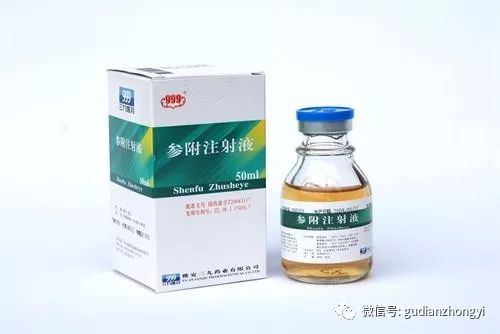 Although Fuzi is the primary medicine for rescuing Yang, its strength alone may not be sufficient, as the condition may be too severe, and Yang Qi may be extremely deficient. The process of restoring Yang Qi also takes time, which is relatively slower compared to herbs like Ganjiang (Dried Ginger).It also has certain toxicity. Therefore, in treating Yang deficiency, it is not simply Fuzi alone; it is often combined with Ganjiang and Gancao (Licorice), which is the basis of Zhang Zhongjing’s Si Ni Tang.Fuzi combined with Ganjiang and Gancao,first reduces Fuzi’s toxicity,acting as a detoxifying agent. They have a mutual relationship where Fuzi is antagonistic to Ganjiang, and it can also be said that Fuzi is antagonistic to Gancao; Gancao or Ganjiang, on the other hand, can counteract Fuzi’s toxicity, reducing its harmful effects.Second, it enhances efficacy, as they have a synergistic relationship that can strengthen the effect of rescuing Yang from reversal.Ganjiang also has the effect of rescuing Yang; modern research shows that Gancao can also enhance Fuzi’s effect in rescuing Yang from reversal.Additionally, although Fuzi rescues Yang, its action is relatively slower compared to Ganjiang, so some texts state that Fuzi’s nature is more conservative, while Ganjiang is more dynamic, as it quickly exerts its effect in rescuing Yang. On the basis of initial effectiveness, Fuzi also begins to take effect,thus allowing the medicinal power to be both rapid and sustained.Due to these multiple advantages, they are combined together. The purpose of combining Fuzi and Ganjiang is to enhance efficacy and reduce toxicity; this is a very special and important combination that must be remembered.
Although Fuzi is the primary medicine for rescuing Yang, its strength alone may not be sufficient, as the condition may be too severe, and Yang Qi may be extremely deficient. The process of restoring Yang Qi also takes time, which is relatively slower compared to herbs like Ganjiang (Dried Ginger).It also has certain toxicity. Therefore, in treating Yang deficiency, it is not simply Fuzi alone; it is often combined with Ganjiang and Gancao (Licorice), which is the basis of Zhang Zhongjing’s Si Ni Tang.Fuzi combined with Ganjiang and Gancao,first reduces Fuzi’s toxicity,acting as a detoxifying agent. They have a mutual relationship where Fuzi is antagonistic to Ganjiang, and it can also be said that Fuzi is antagonistic to Gancao; Gancao or Ganjiang, on the other hand, can counteract Fuzi’s toxicity, reducing its harmful effects.Second, it enhances efficacy, as they have a synergistic relationship that can strengthen the effect of rescuing Yang from reversal.Ganjiang also has the effect of rescuing Yang; modern research shows that Gancao can also enhance Fuzi’s effect in rescuing Yang from reversal.Additionally, although Fuzi rescues Yang, its action is relatively slower compared to Ganjiang, so some texts state that Fuzi’s nature is more conservative, while Ganjiang is more dynamic, as it quickly exerts its effect in rescuing Yang. On the basis of initial effectiveness, Fuzi also begins to take effect,thus allowing the medicinal power to be both rapid and sustained.Due to these multiple advantages, they are combined together. The purpose of combining Fuzi and Ganjiang is to enhance efficacy and reduce toxicity; this is a very special and important combination that must be remembered.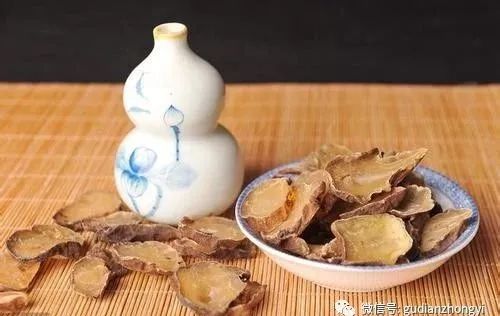 In clinical cases of Yang deficiency, it is not solely the decline of kidney Yang and heart Yang, but also the depletion of Yuan Qi, hence it is referred to asYang Qi depletion. In this case, simply using Fuzi to rescue Yang does not address the depletion of Yuan Qi, so it is necessary to add Ren Shen (Ginseng).Ren Shen and Fuzi combined is known as Shenfu Decoction, and the current injection formulation is based on this prescription.In summary, Fuzi’s role in rescuing Yang from reversal is significant, but it is not easy to use effectively in clinical practice. Ancients said that Fuzi is the most useful medicine, yet also the most difficult to use.The most useful aspect refers to its application in Yang deficiency,where it can save lives in critical conditions, demonstrating its important clinical value.However, it is also considered difficult to use because it treats critical conditions and is toxic, requiring precise knowledge of dosage, usage, and combinations. Any slight negligence may lead to unimaginable consequences, making it regarded as a challenging herb to use.
In clinical cases of Yang deficiency, it is not solely the decline of kidney Yang and heart Yang, but also the depletion of Yuan Qi, hence it is referred to asYang Qi depletion. In this case, simply using Fuzi to rescue Yang does not address the depletion of Yuan Qi, so it is necessary to add Ren Shen (Ginseng).Ren Shen and Fuzi combined is known as Shenfu Decoction, and the current injection formulation is based on this prescription.In summary, Fuzi’s role in rescuing Yang from reversal is significant, but it is not easy to use effectively in clinical practice. Ancients said that Fuzi is the most useful medicine, yet also the most difficult to use.The most useful aspect refers to its application in Yang deficiency,where it can save lives in critical conditions, demonstrating its important clinical value.However, it is also considered difficult to use because it treats critical conditions and is toxic, requiring precise knowledge of dosage, usage, and combinations. Any slight negligence may lead to unimaginable consequences, making it regarded as a challenging herb to use.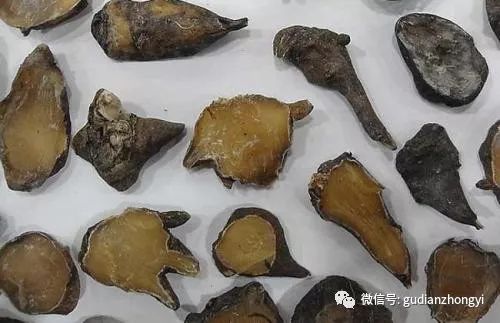 The second effect is to replenish fire and rescue Yang,which refers to replenishing the fire of the Mingmen (Gate of Life).This replenishment of the Mingmen fire actually refers to the body’s Yuan Yang, which is kidney Yang. Here, Fuzi’s role in replenishing fire and assisting Yang refers to replenishing Yuan Yang, thus it can be used for all forms of Yang deficiency. Therefore, in the literature, it is stated that it is used forvarious Yang deficiency conditions.Among Yang deficiency conditions, the first is kidney Yang deficiency, which has various physiological functions. Kidney Yang deficiency can manifest in multiple clinical symptoms, and Fuzi can generally be used. Kidney Yang deficiency primarily fails to warm the body, leading to cold intolerance and cold pain in the lower back and knees.Additionally, it can cause delayed growth and development, leading to premature aging; or it may disrupt kidney function, resulting in edema, frequent urination, or nocturia; in elderly individuals, it may even lead to incontinence; kidney Yang deficiency can also lower reproductive function and sexual performance.Kidney is responsible for receiving Qi; if it fails to do so, it can lead to shortness of breath, with more exhalation and less inhalation, known as “deficiency asthma”; kidney also warms the spleen Yang, leading to prolonged diarrhea due to spleen and kidney Yang deficiency, and Fuzi can be used in these cases.However, its most effective effect is likely in improving kidney Yang deficiency’s inability to warm the body.As for the symptoms caused by other aspects of kidney Yang deficiency, further research may be needed to determine what issues Fuzi can address.However, from ancient to modern clinical applications, Fuzi has been widely used for all forms of kidney Yang deficiency, regardless of the symptoms presented, and it likely has varying degrees of efficacy, such as in cases of generalized edema or difficulty urinating due to kidney Yang deficiency.In cases of kidney Yang deficiency with clear, prolonged urination or frequent nocturia, Fuzi is also used. It is a widely applicable herb for kidney Yang deficiency, and future discussions on Yang-replenishing herbs will focus on the manifestations of Yang deficiency and how to optimally select and combine them.
The second effect is to replenish fire and rescue Yang,which refers to replenishing the fire of the Mingmen (Gate of Life).This replenishment of the Mingmen fire actually refers to the body’s Yuan Yang, which is kidney Yang. Here, Fuzi’s role in replenishing fire and assisting Yang refers to replenishing Yuan Yang, thus it can be used for all forms of Yang deficiency. Therefore, in the literature, it is stated that it is used forvarious Yang deficiency conditions.Among Yang deficiency conditions, the first is kidney Yang deficiency, which has various physiological functions. Kidney Yang deficiency can manifest in multiple clinical symptoms, and Fuzi can generally be used. Kidney Yang deficiency primarily fails to warm the body, leading to cold intolerance and cold pain in the lower back and knees.Additionally, it can cause delayed growth and development, leading to premature aging; or it may disrupt kidney function, resulting in edema, frequent urination, or nocturia; in elderly individuals, it may even lead to incontinence; kidney Yang deficiency can also lower reproductive function and sexual performance.Kidney is responsible for receiving Qi; if it fails to do so, it can lead to shortness of breath, with more exhalation and less inhalation, known as “deficiency asthma”; kidney also warms the spleen Yang, leading to prolonged diarrhea due to spleen and kidney Yang deficiency, and Fuzi can be used in these cases.However, its most effective effect is likely in improving kidney Yang deficiency’s inability to warm the body.As for the symptoms caused by other aspects of kidney Yang deficiency, further research may be needed to determine what issues Fuzi can address.However, from ancient to modern clinical applications, Fuzi has been widely used for all forms of kidney Yang deficiency, regardless of the symptoms presented, and it likely has varying degrees of efficacy, such as in cases of generalized edema or difficulty urinating due to kidney Yang deficiency.In cases of kidney Yang deficiency with clear, prolonged urination or frequent nocturia, Fuzi is also used. It is a widely applicable herb for kidney Yang deficiency, and future discussions on Yang-replenishing herbs will focus on the manifestations of Yang deficiency and how to optimally select and combine them.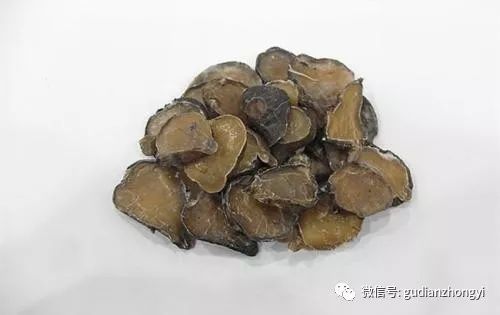 The second is Spleen Yang deficiency,which leads to cold pain in the abdomen, loose stools, and poor appetite. It can nourish both spleen and kidney, so it can be used for both spleen and kidney deficiency, or solely for spleen Yang deficiency.Spleen Yang deficiency is generally a further development of spleen Qi deficiency, so it often needs to be combined with Qi-replenishing herbs, such as Ren Shen (Ginseng) and Bai Zhu (White Atractylodes), which is the guiding principle of the combination in the Li Zhong Decoction with Ren Shen and Bai Zhu.It can also be used for heart Yang deficiency. Yang deficiency conditions already include heart Yang deficiency, and general heart Yang deficiency can present with symptoms like spontaneous sweating and palpitations; in severe cases, it may lead to chest pain with cold symptoms. When using Fuzi, it is often combined with blood-activating herbs or warming herbs like Rougui (Cinnamon) and Guizhi (Cinnamon Twig).For example, in treating Yang deficiency colds, the Ma Huang Fuzi Xi Xin Decoction also uses Fuzi to replenish Yang Qi. Additionally, for Wei Yang not being firm, leading to persistent spontaneous sweating, the treatment can use Qi Fu Decoction, which combines Fuzi with Huang Qi (Astragalus) to stop sweating.In summary,for any Yang deficiency, Fuzi can almost always be used; for any cold deficiency condition, it can be used to replenish fire and assist Yang.
The second is Spleen Yang deficiency,which leads to cold pain in the abdomen, loose stools, and poor appetite. It can nourish both spleen and kidney, so it can be used for both spleen and kidney deficiency, or solely for spleen Yang deficiency.Spleen Yang deficiency is generally a further development of spleen Qi deficiency, so it often needs to be combined with Qi-replenishing herbs, such as Ren Shen (Ginseng) and Bai Zhu (White Atractylodes), which is the guiding principle of the combination in the Li Zhong Decoction with Ren Shen and Bai Zhu.It can also be used for heart Yang deficiency. Yang deficiency conditions already include heart Yang deficiency, and general heart Yang deficiency can present with symptoms like spontaneous sweating and palpitations; in severe cases, it may lead to chest pain with cold symptoms. When using Fuzi, it is often combined with blood-activating herbs or warming herbs like Rougui (Cinnamon) and Guizhi (Cinnamon Twig).For example, in treating Yang deficiency colds, the Ma Huang Fuzi Xi Xin Decoction also uses Fuzi to replenish Yang Qi. Additionally, for Wei Yang not being firm, leading to persistent spontaneous sweating, the treatment can use Qi Fu Decoction, which combines Fuzi with Huang Qi (Astragalus) to stop sweating.In summary,for any Yang deficiency, Fuzi can almost always be used; for any cold deficiency condition, it can be used to replenish fire and assist Yang.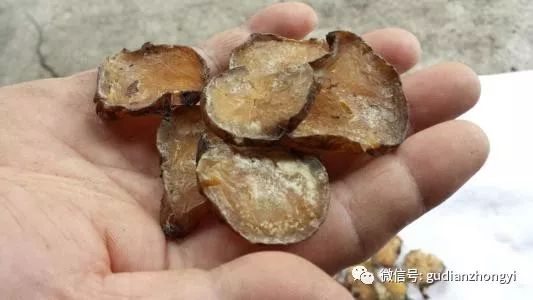 The third effect is to disperse cold and relieve pain.It is important to remember that any general mention of dispersing cold and relieving pain indicates that this herb can both warm the interior and warm the meridians, having a broad effect of warming the interior and dispersing cold, or warming the interior and relieving pain.For Fuzi’s ability to disperse cold and relieve pain, it can first warm the interior, making it suitable for cold stomach or spleen and stomach deficiency. If it is Yang deficiency, it can be used, as already mentioned in the Yang replenishment section. If it is not Yang deficiency but a condition of excess, such as excessive cold evil, leading to abdominal cold pain, Fuzi can still be used.In addition to warming the interior, Fuzi can also warm the meridians,widely used for cold pain in the limbs or headaches due to cold in the meridians. A particularly unique warming and dispersing cold effect of Fuzi is its similar action to Wutou (Aconite), which can dispel wind and dampness, making it a good herb for treating wind-damp cold bi syndrome, especially when combined with Yang deficiency symptoms.While it is not as effective as Wutou for dispelling wind-dampness, Fuzi can still be used and has a similar effect.In the third application, it treats interior cold conditions as an excess condition; in the second application, it is also an interior cold condition, but as a deficiency condition. Therefore, the ancients said that Fuzi “can be used whenever there is cold, regardless of deficiency or excess”; one is a cold deficiency condition, and the other is a cold excess condition. The excess condition is for warming the interior and dispersing cold to relieve pain, while the deficiency condition is for warming and replenishing Yang Qi. The main effects of Fuzi are in these three aspects, and their correspondence is quite direct and easy to remember.
The third effect is to disperse cold and relieve pain.It is important to remember that any general mention of dispersing cold and relieving pain indicates that this herb can both warm the interior and warm the meridians, having a broad effect of warming the interior and dispersing cold, or warming the interior and relieving pain.For Fuzi’s ability to disperse cold and relieve pain, it can first warm the interior, making it suitable for cold stomach or spleen and stomach deficiency. If it is Yang deficiency, it can be used, as already mentioned in the Yang replenishment section. If it is not Yang deficiency but a condition of excess, such as excessive cold evil, leading to abdominal cold pain, Fuzi can still be used.In addition to warming the interior, Fuzi can also warm the meridians,widely used for cold pain in the limbs or headaches due to cold in the meridians. A particularly unique warming and dispersing cold effect of Fuzi is its similar action to Wutou (Aconite), which can dispel wind and dampness, making it a good herb for treating wind-damp cold bi syndrome, especially when combined with Yang deficiency symptoms.While it is not as effective as Wutou for dispelling wind-dampness, Fuzi can still be used and has a similar effect.In the third application, it treats interior cold conditions as an excess condition; in the second application, it is also an interior cold condition, but as a deficiency condition. Therefore, the ancients said that Fuzi “can be used whenever there is cold, regardless of deficiency or excess”; one is a cold deficiency condition, and the other is a cold excess condition. The excess condition is for warming the interior and dispersing cold to relieve pain, while the deficiency condition is for warming and replenishing Yang Qi. The main effects of Fuzi are in these three aspects, and their correspondence is quite direct and easy to remember.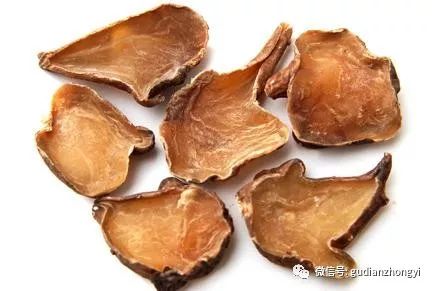 Fuzi’s usage, dosage, and precautions also warrant attention.First, the dosage is typically 3-9 grams. The dosage of Fuzi varies significantly across the country; in some coastal areas of Jiangnan, the general dosage tends to be lower, as the local climate is hot, and people are prone to heat and sweating, often leading to fluid damage. Doctors are particularly cautious with Fuzi, especially in hot climates, where it is common to use only a few grams.However, in the southwestern region, many clinical practitioners feel that a few grams may not be effective, so it is common to use Fuzi up to 30 grams, especially in Sichuan and Yunnan. In the 1950s and 60s, a famous doctor from Yunnan known as “Fire God” Wu Peiheng often prescribed Fuzi in doses of 100-500 grams.The key factor islong decoction; if Fuzi is used in doses of 3-5 grams but not decocted for a long time or processed, it can easily lead to toxicity. If the dosage is large, decocting for 3-5 hours, sometimes from morning to afternoon or from evening to the next morning, can make using 100-200 grams of Fuzi safe without toxic reactions.The critical question is whether such a large dosage should be used; in reality, it may not be fully utilized. I want to clarify that I am not advocating for everyone to use high doses, especially for beginners. The textbook dosages should be the primary reference, and after gaining experience, if deemed necessary, the dosage can be slightly increased.Most of the time, the solvent in decoctions is limited; even if a large amount of medicine is used, its solubility has limits, and its content does not infinitely increase. We need to approach dosage correctly.Excessively large dosages are also unsafe and wasteful of the herb, while being overly cautious can affect its efficacy.Fuzi must be decocted for a long time,so within a reasonable range, using a bit more should be quite safe.Its warming and drying properties are not as intense as those of Ganjiang or Hu Jiao (Black Pepper), so in southwestern folk medicine, Fuzi is often used as a food therapy ingredient, with larger amounts used when stewing lamb, but for a long cooking time.Many people do not have obvious Yang deficiency, but after using it, they do not experience adverse reactions from warming and drying. Fuzi should be considered quite safe as long as it is used reasonably; the key is long decoction until there is no trace of numbness, similar to Wutou.
Fuzi’s usage, dosage, and precautions also warrant attention.First, the dosage is typically 3-9 grams. The dosage of Fuzi varies significantly across the country; in some coastal areas of Jiangnan, the general dosage tends to be lower, as the local climate is hot, and people are prone to heat and sweating, often leading to fluid damage. Doctors are particularly cautious with Fuzi, especially in hot climates, where it is common to use only a few grams.However, in the southwestern region, many clinical practitioners feel that a few grams may not be effective, so it is common to use Fuzi up to 30 grams, especially in Sichuan and Yunnan. In the 1950s and 60s, a famous doctor from Yunnan known as “Fire God” Wu Peiheng often prescribed Fuzi in doses of 100-500 grams.The key factor islong decoction; if Fuzi is used in doses of 3-5 grams but not decocted for a long time or processed, it can easily lead to toxicity. If the dosage is large, decocting for 3-5 hours, sometimes from morning to afternoon or from evening to the next morning, can make using 100-200 grams of Fuzi safe without toxic reactions.The critical question is whether such a large dosage should be used; in reality, it may not be fully utilized. I want to clarify that I am not advocating for everyone to use high doses, especially for beginners. The textbook dosages should be the primary reference, and after gaining experience, if deemed necessary, the dosage can be slightly increased.Most of the time, the solvent in decoctions is limited; even if a large amount of medicine is used, its solubility has limits, and its content does not infinitely increase. We need to approach dosage correctly.Excessively large dosages are also unsafe and wasteful of the herb, while being overly cautious can affect its efficacy.Fuzi must be decocted for a long time,so within a reasonable range, using a bit more should be quite safe.Its warming and drying properties are not as intense as those of Ganjiang or Hu Jiao (Black Pepper), so in southwestern folk medicine, Fuzi is often used as a food therapy ingredient, with larger amounts used when stewing lamb, but for a long cooking time.Many people do not have obvious Yang deficiency, but after using it, they do not experience adverse reactions from warming and drying. Fuzi should be considered quite safe as long as it is used reasonably; the key is long decoction until there is no trace of numbness, similar to Wutou.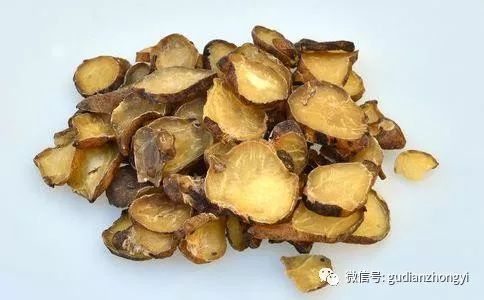 Although the combinations and processing of Fuzi can reduce its toxicity, the most effective method isto heat and decoct it; therefore, Fuzi in pill or powder form must be used with caution, as it has significant toxicity if not processed through high heat and hydrolysis. I have seen a case of Fuzi poisoning where a person ate a lot of Fuzi cooked with meat and had no reaction, but after eating a piece of Fuzi that was not submerged in water and stuck to the pot, they immediately felt unwell.Initially, they experienced numbness, followed by adverse cardiac symptoms, including arrhythmias, caused by that piece of Fuzi that was not cooked in water. This is a firsthand example of Fuzi poisoning I witnessed, indicating that thorough decoction in water is crucial for detoxification.
Although the combinations and processing of Fuzi can reduce its toxicity, the most effective method isto heat and decoct it; therefore, Fuzi in pill or powder form must be used with caution, as it has significant toxicity if not processed through high heat and hydrolysis. I have seen a case of Fuzi poisoning where a person ate a lot of Fuzi cooked with meat and had no reaction, but after eating a piece of Fuzi that was not submerged in water and stuck to the pot, they immediately felt unwell.Initially, they experienced numbness, followed by adverse cardiac symptoms, including arrhythmias, caused by that piece of Fuzi that was not cooked in water. This is a firsthand example of Fuzi poisoning I witnessed, indicating that thorough decoction in water is crucial for detoxification.
For Reference and Sharing: Click the upper right corner -> Share to Moments
Add personal WeChat for communication and learning:gudianzy
